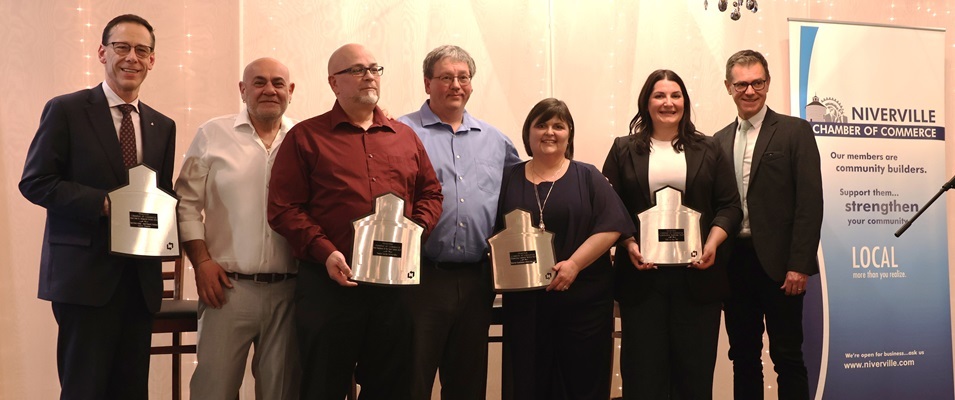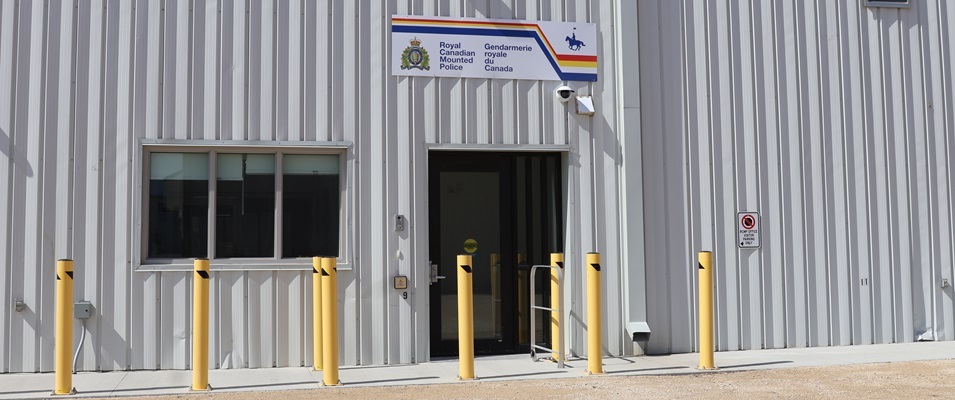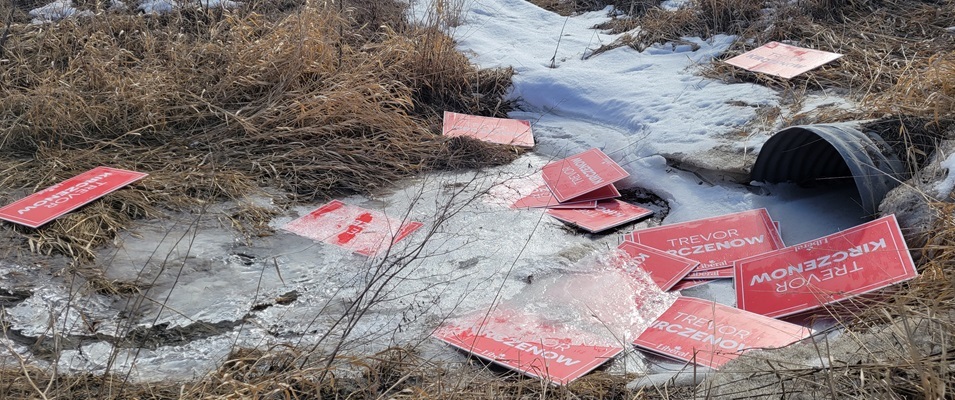
On April 20, the Manitoba Climate Action Team launched volume three of Manitoba’s Road to Resilience (MRR) at a stakeholder gathering held at the Bill and Helen Norrie Library in Winnipeg. Members of the business community and members of government were invited to attend.
The MRR is a series of reports which outlines a pathway to get Manitoba moving toward a future free of fossil fuels. Volume three of the report lays out governmental policy solutions which would get the province on track to reach its climate goals through the use of clean, affordable energy, all while saving the taxpayer money.
Molly McCracken, director of the Canadian Centre for Policy Alternatives, opened the event.
“We are here, in 2023, to say that we have seven years to cut emissions in Manitoba in half in order to prevent climate catastrophe,” said McCracken. “This is a startling fact but also one that can be positive as we have the knowledge, expertise, and know-how right here in Manitoba to do so.”
McCracken is referring to the federal government’s 2030 Emissions Reduction Plan, which has set a target for Canada to reduce its greenhouse gas emissions by 40 percent below 2005 levels by 2030, with net-zero emissions by 2050.
With the ever-rising cost of gas and oil, McCracken says that there’s no better time for a complete transition away from fossil fuels.
Transitioning to New Energy Sources
Curt Hull is a researcher and the lead author for the MRR project. According to Hull, the United Nations Inter-governmental Panel on Climate Change (IPCC) released its latest report just last month, calling the climate issue a ticking time bomb. They implored all industrialized nations, such as Canada, to arrive at net-zero emissions ten years earlier, by 2040.
“How are we doing?” Hull asked event attendees. “Well, not so well. Manitoba is the only province, other than Alberta, now sending more greenhouse gas (GG) pollution into the air… than we did in 2005.”
Here at home, he says, the burning of fossil fuels in our furnaces and vehicles accounts for almost 60 percent of our GG emissions. Additionally, the import of these fossil fuels is costing the local economy $2 billion to $3 billion per year.
To eliminate this imported resource in a cost-effective way, though, we would need to find cheaper, locally made renewable energy alternatives.
Hull believes the MRR has done just that.
In recent years, Manitoba Hydro published estimates for its required energy output if a ubiquitous move away from fossil fuel were imminent. That report calls for the creation of 200 percent more power over the course of a year.
“That’s a big challenge,” said Hull. “We believe that our numbers… show that it can be done. And it can be done without experimental technology, new dams, or nuclear [power].”
What’s needed to make that happen, he adds, is improved government regulation, better incentives for uptick, and investment in renewable energy infrastructure.
“Addressing climate change in Manitoba should be good for our economy and our pocketbooks,” said Hull. “[But] the current approach of a scattering of small incentives is not working. Manitobans are paying too much for fossil fuels at the pump and on their heating bills, and our emissions continue to make climate change worse.”
While it may sound monumental in scope, Hull says that we only need to look to the generations before us. In 1939, Canada’s ship, plane, and gun manufacturing capability was almost non-existent. Within three years, he says, Canada became a key player in this wartime industry.
“They knew they had an emergency and they reacted with courage and ingenuity,” Hull said. “We are calling for some of that… but this time, we aren’t putting our efforts into a war of destruction. This time it’s [a war of] construction.”
A Geothermal Solution
Ed Lohrenz of GEOptimize Inc. also addressed those gathered. Lohrenz is a world-renowned expert and proponent of geothermal energy. His goal, he says, is to run natural gas companies out of business.
For the audience to better understand the impact of geothermal on the climate, Lohrenz ran comparisons using three different scenarios.
The first scenario included two homes, one heated by electricity and one heated by natural gas, with the addition of one gas-fuelled car per household. This sample demonstrates that your average Manitoba neighbourhood today and is responsible for 16,000 tonnes of CO2 emission annually.
Sample two converts both homes to geothermal energy while still running gas-fuelled vehicles. Emissions are effectively cut in half, he says, to 10,000 tonnes annually.
Finally, if both households traded in their vehicles for electric models, CO2 emissions would be eliminated completely, without the addition of any extra load to the electrical grid.
This can all be done, he adds, without massive costs to the individual.
Just like other utilities run as district systems with a main line connecting to a series of households, so too geothermal can become a district utility. And like the other utilities, the cost can be amortized over many years, making the installation of infrastructure affordable from the start.
“What it means is running one pipe down the street and you can connect to it, take some heat from it, or dump some heat into it when you’re cooling [your home], and you’re using electricity to do that,” Lohrenz said. “About one-quarter as much as you would with electric heat.”
But there’s even more to be benefitted from geothermal systems. Lohrenz references the Jonathan Toews Community Centre (JTCC) in St. Vital with its two ice rinks that expel three to four million kilowatt (kW) hours’ worth of energy every year.
“Right now it’s just dissipating into the atmosphere,” he said. “It’s blown away by the wind. We’re not recovering it. That energy, if it was stored in the ground, it could be pulled out by the other buildings around it.”
Case in point: within the neighbourhood of the JTCC is a library, a school, a personal care home, and about 110 homes. Together, these buildings consume about as much energy as the JTCC sends into the atmosphere every year, Lohrenz says. On a collective geothermal system, the JTCC would feed the entire neighbourhood’s energy needs.
“It’s free energy and right now we’re wasting it,” said Lohrenz. “We could recycle that and use it again and again.”
How Do We Get Started?
Hull says that it can’t be done without first creating a climate emergency agency whose responsibility it would be to coordinate the energy transition effort across the entire province.
Next, he said, the federal government’s carbon tax rebates, currently received by most Manitobans, would need to be redirected into a provincial fund. From this fund, zero-interest loans would be offered to incentivize Manitoba homeowners and business owners to retrofit for geothermal.
“But also, we should take a portion of that fund and continue to rebate it to the lowest income households so that folks that really depend on those funds continue to receive them,” Hull added.
It would also mean that crown corporations like Efficiency Manitoba would need to refocus their incentivization packages based on the elimination of GG emissions as opposed to energy and fossil fuel reduction.
Finally, a broadscale geothermal utility needs to begin development as soon as possible.
“We must do this, we can do this, and we should do this, for both environmental and economic reasons,” Hull said. “By taking serious action on climate change, we could keep billions of dollars here in our economy and create significant savings for businesses and households alike. Even for those Manitobans on the fringes, who aren’t yet convinced that climate change is real, they know all too well that their energy bills are real and will only get worse if nothing changes.”




















